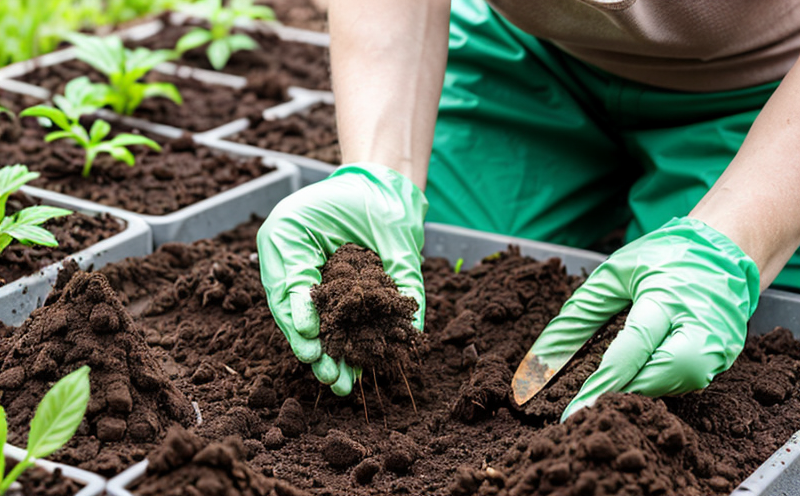DIN EN 15186 Abrasion Testing of Outdoor Plastic Coatings
The DIN EN 15186 standard provides a method specifically designed to evaluate the abrasion resistance of outdoor plastic coatings. This is crucial for ensuring that materials used in outdoor environments are capable of withstanding exposure to abrasive elements such as sand, dust, and gravel over time.
Outdoor applications, especially those exposed to harsh weather conditions, require robust materials that can resist degradation caused by environmental factors. The abrasion resistance test helps manufacturers ensure their products meet the necessary durability requirements before they reach end-users. This standard is particularly important for sectors like horticulture, landscape design, and outdoor furniture manufacturing.
The testing procedure involves subjecting a specimen to repeated abrasive contacts under controlled conditions. The goal is to determine how much material is lost due to abrasion over a specified period or number of cycles. The results provide valuable information on the durability of the coating in real-world scenarios.
Preparation of the test sample includes cleaning, conditioning, and marking it according to specifications outlined in DIN EN 15186. Once prepared, the specimen is subjected to an abrasive wheel that simulates typical outdoor conditions. The abrasion resistance is then measured by comparing the original weight or area with the final weight or area after testing.
The test results are critical for quality control and compliance purposes. They help ensure that products meet the required standards set forth in DIN EN 15186, thereby protecting both manufacturers and consumers from potential issues related to premature failure of outdoor plastic coatings.
| Sample Preparation | Testing Procedure | Data Collection |
|---|---|---|
| Cleaning and conditioning the specimen | Subjecting the sample to abrasive contacts using a specified apparatus | Weighing or measuring the change in dimensions post-testing |
| Marking the specimen according to standards | Recording abrasion cycles and time taken for wear | Comparing initial and final measurements |
The DIN EN 15186 standard is widely accepted in Europe and beyond, making it a key requirement for manufacturers of outdoor plastics. By adhering to this standard, companies can enhance their reputation by demonstrating commitment to product quality and durability.
- Ensures consistent abrasion resistance across different batches
- Facilitates comparability between products from various manufacturers
- Safeguards against potential claims due to premature failure of outdoor plastics
Why It Matters
The durability of outdoor plastic coatings is essential for maintaining aesthetic appeal and functionality in environments exposed to abrasive elements. Proper abrasion testing ensures that these materials can withstand the rigors of daily use without requiring frequent replacement or maintenance.
For manufacturers, meeting DIN EN 15186 standards demonstrates a commitment to quality and reliability, which is increasingly important in competitive markets. This standard also helps protect against legal disputes by providing objective evidence of product performance under specified conditions.
End-users benefit from products that are more resilient and less likely to degrade prematurely, leading to longer service life and reduced environmental impact through lower waste generation.
- Aesthetic preservation over time
- Functional reliability in challenging environments
- Reduction in maintenance costs
In summary, DIN EN 15186 abrasion testing is vital for ensuring the longevity and performance of outdoor plastic coatings. Compliance with this standard can significantly enhance a product's reputation and marketability.
Industry Applications
| Application | Description |
|---|---|
| Horticulture Equipment | Testing durability of plastic parts in gardening tools and equipment |
| Landscape Furniture | Evaluating the resilience of outdoor furniture plastics to abrasion |
| Garden Pathways | Assessing the longevity of plastic pathway materials exposed to foot traffic |
| Outdoor Signage | Ensuring that sign material can withstand environmental wear and tear |
| Agricultural Equipment | Determining abrasion resistance in parts used for agricultural machinery |
| Playground Surfaces | Testing the durability of plastic surfaces in playgrounds exposed to rough use |
| Construction Materials | Evaluating the resilience of exterior construction materials against abrasive wear |
The abrasion testing outlined in DIN EN 15186 is particularly relevant for industries where outdoor plastics are subjected to continuous exposure to abrasive elements. By adhering to this standard, manufacturers can ensure that their products meet the necessary durability requirements before they reach end-users.
- Horticulture
- Landscape Design
- Outdoor Furniture Manufacturing
- Agricultural Equipment Production
- Playground Construction
Quality and Reliability Assurance
The DIN EN 15186 standard plays a critical role in quality assurance processes by providing a standardized method for evaluating abrasion resistance. This ensures that products consistently meet the required standards, reducing variability between batches and enhancing overall reliability.
For compliance officers and R&D engineers, understanding and implementing this standard is essential for ensuring product performance meets market expectations. Compliance with DIN EN 15186 also helps protect against potential legal disputes by providing objective evidence of product performance under specified conditions.
- Ensures consistent abrasion resistance across different batches
- Facilitates comparability between products from various manufacturers
- Safeguards against potential claims due to premature failure of outdoor plastics
The results of DIN EN 15186 testing can be used in quality control processes, helping to identify areas for improvement and ensuring that all products meet the necessary standards. This standard is particularly important for industries where product durability is a key factor in customer satisfaction.





